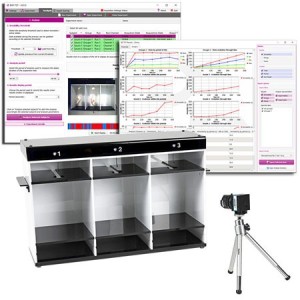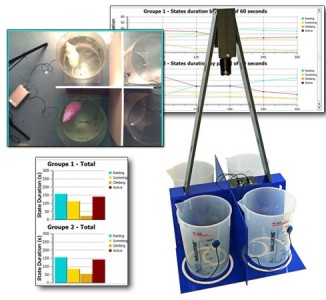Authors
Guo J, Zhang W, Zhang L et al.
Lab
Research Center for Immunology, School of Basic Medical Sciences, Xinxiang Medical University, China
Journal
Sci Rep
Abstract
Depression is one of the major side effects of interferon alpha (IFN-α) treatment, but the molecular mechanism underlying IFN-α-induced depression remains unclear. Several studies have shown that the serotonin receptors 5-HTR1b and 5-HTR4 play key roles in the anti-depression effects associated with p11 (S100A10). We investigated the effects of IFN-α on the regulation of p11, 5-HTR1b and 5-HTR4 in mice and human neuroblastoma cells (SH-sy5y). We found that intraperitoneal injection with IFN-α in Balb/c mice resulted in an increased immobility in FST and TST, and potently lowered the protein levels of p11, 5-HTR1b and 5-HTR4 in the hippocampus or cingulate gyrus. IFN-α significantly down-regulated the protein levels of p11, 5-HTR1b and 5-HTR4 in SH-sy5y cells, in a time- and dose-dependent manner. Our study revealed that over-expression of p11 could prevent the IFN-α-induced down-regulation of 5-HTR1b and 5-HTR4. The results indicated that IFN-α treatment resulted in p11 down-regulation, which subsequently decreased 5-HTR1b and 5-HTR4 in vitro or in vivo. Our findings suggested that p11 might be a potential regulator on 5-HTR1b and 5-HTR4 as well as a predictor of or a therapeutic target for IFN-α-induced depression.
BIOSEB Instruments Used
Tail Suspension Test - Wireless (BIO-TST5),Forced Swimming Test: New FST DUAL SENSOR (BIO-FST-DSM)
Keywords/Topics
Domaines de recherche divers
Source :

 Douleur - Allodynie/Hyperalgésie Thermique
Douleur - Allodynie/Hyperalgésie Thermique Douleur - Spontanée - Déficit de Posture
Douleur - Spontanée - Déficit de Posture Douleur - Allodynie/Hyperalgésie Mécanique
Douleur - Allodynie/Hyperalgésie Mécanique Apprentissage/Mémoire - Attention - Addiction
Apprentissage/Mémoire - Attention - Addiction Physiologie & Recherche Respiratoire
Physiologie & Recherche Respiratoire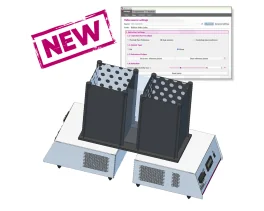











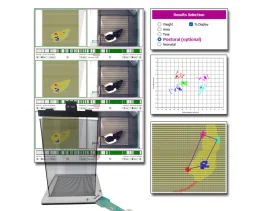














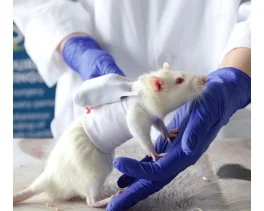









 Douleur
Douleur Système Nerveux Central (SNC)
Système Nerveux Central (SNC)  Neurodégénérescence
Neurodégénérescence Système sensoriel
Système sensoriel Système moteur
Système moteur Troubles de l'humeur
Troubles de l'humeur Autres pathologies
Autres pathologies Système musculaire
Système musculaire Articulations
Articulations Métabolisme
Métabolisme Thématiques transversales
Thématiques transversales Congrès & Meetings
Congrès & Meetings 